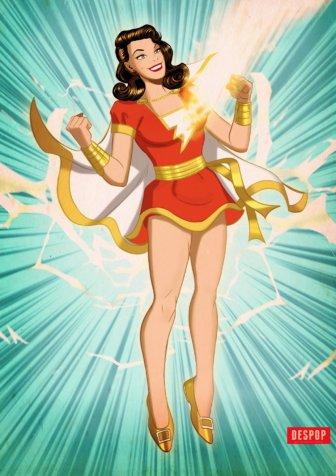 A few days after the whole “thot audit” nonsense, another (though much smaller) silly season erupted on Twitter. But while the former was comprised mostly of misogynist incel and PUA-type whore haters, the latter was comprised mostly of misogynistic married whore-haters who are seemingly terrified of the idea that their daughters might grow up to have pragmatic views about sex. And while the “thot audit” yahoos proudly and openly advertised themselves as copsuckers and badge-lickers, the “Would you want your daughter to do it?” busybodies mostly claimed to have libertarian ideas about decriminalization and so pretended that their concern about sex work is that it’s “dangerous” and/or not “empowering”. The hypocrisy of the “dangerous” argument is clearly revealed by the fact that these men don’t pontificate about how women shouldn’t join the cops or military; somehow danger is only an issue when sex is involved. And nobody seems all too concerned about whether being a waitress, cashier, or manicurist is “empowering”; again, “empowerment” only magically becomes an issue when sex is involved. The basic issue here is that busybodies with creepy sexual fantasies about women feel qualified to judge work they’ve never done and know nothing about on airy-fairy criteria like “empowerment”; this is why we have prohibition. The only kind of “empowerment” that a job is required to provide is economic empowerment, in other words, the amount of economic power it provides relative to other jobs. And despite the “pimp” and “slavery” masturbatory fantasies of prohibitionists, sex work compares very well indeed in comparison to other jobs which require no formal education, licensing, etc. But that’s not the only problem with the concept of “empowerment”; as I wrote in “Politicizing the Personal” over 7 years ago:
A few days after the whole “thot audit” nonsense, another (though much smaller) silly season erupted on Twitter. But while the former was comprised mostly of misogynist incel and PUA-type whore haters, the latter was comprised mostly of misogynistic married whore-haters who are seemingly terrified of the idea that their daughters might grow up to have pragmatic views about sex. And while the “thot audit” yahoos proudly and openly advertised themselves as copsuckers and badge-lickers, the “Would you want your daughter to do it?” busybodies mostly claimed to have libertarian ideas about decriminalization and so pretended that their concern about sex work is that it’s “dangerous” and/or not “empowering”. The hypocrisy of the “dangerous” argument is clearly revealed by the fact that these men don’t pontificate about how women shouldn’t join the cops or military; somehow danger is only an issue when sex is involved. And nobody seems all too concerned about whether being a waitress, cashier, or manicurist is “empowering”; again, “empowerment” only magically becomes an issue when sex is involved. The basic issue here is that busybodies with creepy sexual fantasies about women feel qualified to judge work they’ve never done and know nothing about on airy-fairy criteria like “empowerment”; this is why we have prohibition. The only kind of “empowerment” that a job is required to provide is economic empowerment, in other words, the amount of economic power it provides relative to other jobs. And despite the “pimp” and “slavery” masturbatory fantasies of prohibitionists, sex work compares very well indeed in comparison to other jobs which require no formal education, licensing, etc. But that’s not the only problem with the concept of “empowerment”; as I wrote in “Politicizing the Personal” over 7 years ago:
…To “empower” someone is to grant her power; it automatically implies A) that she hasn’t got any in the first place, and B) that such power is the speaker’s to give. Using the word in an active sense (“we need to empower women”) establishes the speaker or his organization as the intrinsic superior and benefactor of the person or persons so “empowered”, and using the word in a passive sense (“an empowered woman”) robs the person so “empowered” of agency, reducing her to the passive recipient of someone else’s benevolence just as people were imagined to be “granted” rights by a king in archaic political theory…
In short, merely bringing up the word in a discussion about women automatically places the speaker at a vantage point above the person he’s speaking about, like a scientist discussing some species of newt. Nobody uses the word “empowered” when talking about men’s employment, and nobody should be using it to talk about women’s either.
